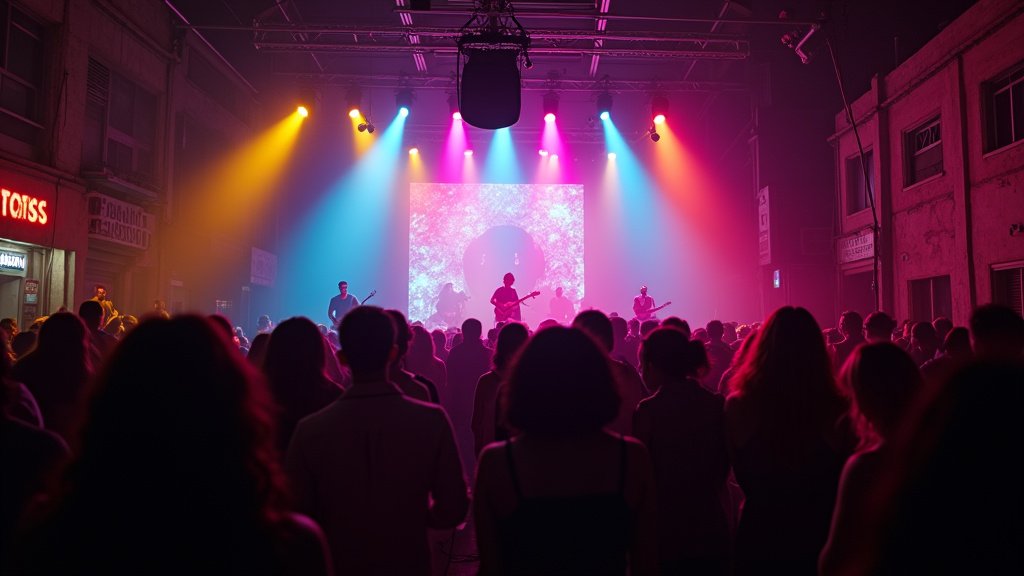Los Angeles, California – Public celebrations for the upcoming Fourth of July holiday across the Los Angeles area have been significantly impacted, with multiple large-scale events either canceled or postponed. Organizers are citing heightened safety concerns stemming from recent and ongoing operations by U.S. Immigration and Customs Enforcement (ICE).
This disruption affects a range of traditional Independence Day festivities, from major county-backed gatherings to local community parades. The decision to scale back or halt these events underscores the palpable tension and uncertainty felt by many residents and officials in the wake of intensified immigration enforcement activities.
Major Celebrations Affected
Among the most notable events impacted is the Gloria Molina Grand Park Summer Block Party in downtown Los Angeles. This popular celebration, which attracted over 20,000 people in 2024, has been postponed indefinitely. According to organizers, the decision was made “out of an abundance of caution,” prioritizing public safety amid the current climate.
The cancellations and postponements extend across various parts of Los Angeles County. In Rowland Heights, a planned summer movie and concert series event has been postponed. Similarly, the city of Cudahy’s Independence Day Celebration has been affected, alongside a Fourth of July event slated for Huntington Park.
Several other beloved annual gatherings will not proceed as planned. Cancellations include the East Los Angeles Rockin’ 4th of July celebration, the Fourth of July Freedom Walk typically held in Whittier’s Palm Park, and the Independence Day celebration in Bell Gardens. The El Sereno Bicentennial Committee parade, an event that traditionally draws more than 1,200 spectators, has also been canceled.
Context: Heightened ICE Activity
The backdrop to these decisions is a period of significantly increased enforcement activity by ICE in the region. Data indicates that the agency has arrested over 1,618 people in the Los Angeles area since last month alone. These operations are part of broader federal immigration enforcement efforts but have led to considerable anxiety within immigrant communities and concern among local officials regarding potential impacts on public life and safety during large gatherings.
Immigration and Customs Enforcement (ICE) is a federal law enforcement agency under the U.S. Department of Homeland Security responsible for enforcing immigration laws within the United States.
Community Impact and Broader Tensions
The intensified ICE presence and subsequent arrests have not occurred without reaction. The situation has prompted protests in Los Angeles, reflecting community opposition and fear. The broader climate of tension has also seen the deployment of the National Guard and Marines in unrelated capacities or as part of overall security postures, adding another layer of complexity to the public safety discussion.
The decision by event organizers to cancel or postpone is a direct acknowledgment of concerns that large public events could potentially become locations for enforcement actions or lead to increased risk for attendees, particularly those from immigrant backgrounds or mixed-status families. This fear can suppress participation and undermine the inclusive spirit typically associated with Independence Day celebrations.
The economic impact on vendors and local businesses that rely on these community events is also a consideration, though secondary to the primary focus on safety and community well-being cited by organizers.
Uncertainty Lingers
The wave of cancellations leaves residents in many parts of Los Angeles without traditional venues to celebrate the national holiday. While some smaller, private events may proceed, the absence of these large, public gatherings marks a notable shift in how Independence Day will be observed in the county this year. The indefinite nature of the postponement for events like the Grand Park celebration means that rescheduling remains uncertain, contingent on evolving circumstances and public safety assessments.
The situation highlights the intersection of federal immigration policy, local community dynamics, and the planning of public events in a large, diverse metropolitan area like Los Angeles.





